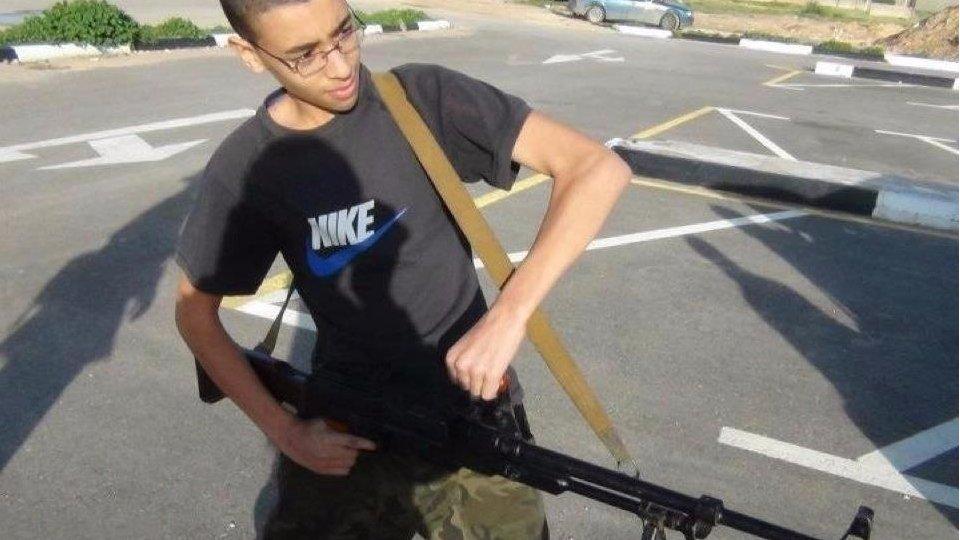Manchester Arena attack: Man tried to comfort Saffie-Rose Roussos
- Published
Expert’s report finds eight-year-old Saffie "could have been saved" if treated properly for her injuries
A man has described how he tried to help the youngest victim of the Manchester Arena attack as she lay badly injured after the explosion.
Paul Reid, 46, was the first person to reach eight-year-old Saffie-Rose Roussos after the bomb was detonated.
He said she asked for her mum and said he tried to keep her awake by talking about the Ariana Grande gig.
It comes after a new report found Saffie could have survived if she had received better medical help.
Twenty-two people were murdered and hundreds more injured when Salman Abedi detonated a bomb in the arena foyer as fans left the concert on 22 May 2017.
Mr Reid, who was selling posters at the concert, told the BBC he ran into the foyer seconds after the bomb went off.
"There was a big bang and I could see up on to the foyer, and there was smoke and you could hear things pinging off the wall," he said.
"I still had the posters in my hand. It was mad because it was like I wasn't there, like I was watching myself.
"People were just screaming and running in every direction you could think of."
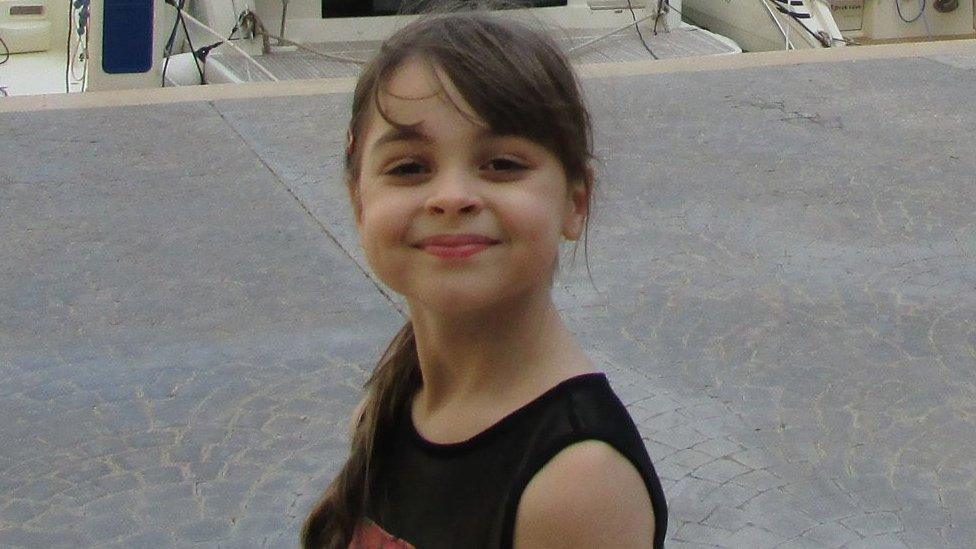
Saffie-Rose Roussos was the youngest victim of the Manchester Arena bombing
Mr Reid said he tried to help two other people before he noticed Saffie lying on the floor.
"She was still conscious. I asked her her name and I thought she said Sophie," he said.
"She just got a little bit upset. She asked me for her mum and I said not to worry, we're going to find her in a minute.
"And I sat there trying to keep her calm. I had to talk to her about the concert, and did she enjoy it.
"All the time I was sat there, I just thought hundreds of people are just going to come running in here and help us. And, well, hardly anybody came in."
The public inquiry into the attack, which started in September, began to examine the emergency response to the atrocity on Monday.
Mr Reid said he began watching the inquiry but said some details given in the opening days did not marry up with his recollection of what happened, and he switched it off.
He told the BBC after a while another person came to help, but after cutting away some of Saffie's clothing they left and went to the aid of someone else.
"I gave her [Saffie] a sip of water, because in all this madness there's somebody handing water out," he said.
"So you can imagine in the foyer now, all this is going on and there's a man walking about with water."
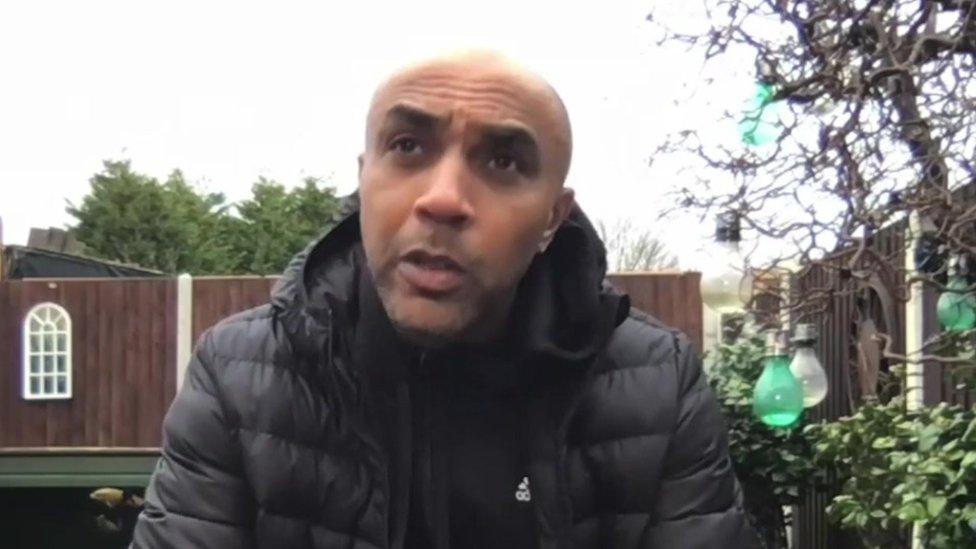
Paul Reid said he was still haunted by what happened that night
Mr Reid said a police officer suggested moving Saffie out of the foyer, but with no stretchers to lift her they had to use a piece of plastic hoarding.
"The policeman came and said 'she's got to go, I'll take her in my car'," he added.
"There was a plastic sheet under somebody's leg who was injured, I started pulling the sheet from under his leg. We put her on it and I started to carry her out, but the board was slippy."
He said they could not get the makeshift stretcher into the officer's car, so they flagged down an ambulance.
Mr Reid said he then returned to the foyer, where he went back to the man who he had taken the hoarding from.
"He had a gash in his stomach, and a paramedic was sitting there holding something against his stomach," he said.
"I held his hand. He had a Liverpool accent so I talked to him about football to take his mind off things, and my mind off things."
'War zone'
Mr Reid said he was still haunted by what happened that night.
"It's like yesterday. I can still smell the smoke in that foyer. Still hear the alarms when I go to sleep, when I close my eyes," he said.
"I'm first aid trained, but the most I'd done is put a plaster on.
"To step in that foyer, it was carnage. It was a war zone."
Saffie's parents have said they would not have expected member of the public to have known how to treat her injuries.
Her father Andrew Roussos told the BBC: "There was a member of the public with her, I can't expect him to tourniquet her, splint her legs and so on.
"But the medically trained people that were with her, and were with her throughout and didn't apply basic first aid to give Saffie a chance."
The inquiry has previously heard it is important to acknowledge the enormous pressure which those who responded that night came under.

Why not follow BBC North West on Facebook, external, Twitter, external and Instagram, external? You can also send story ideas to northwest.newsonline@bbc.co.uk, external
Related topics
- Published18 January 2021

- Published17 January 2021
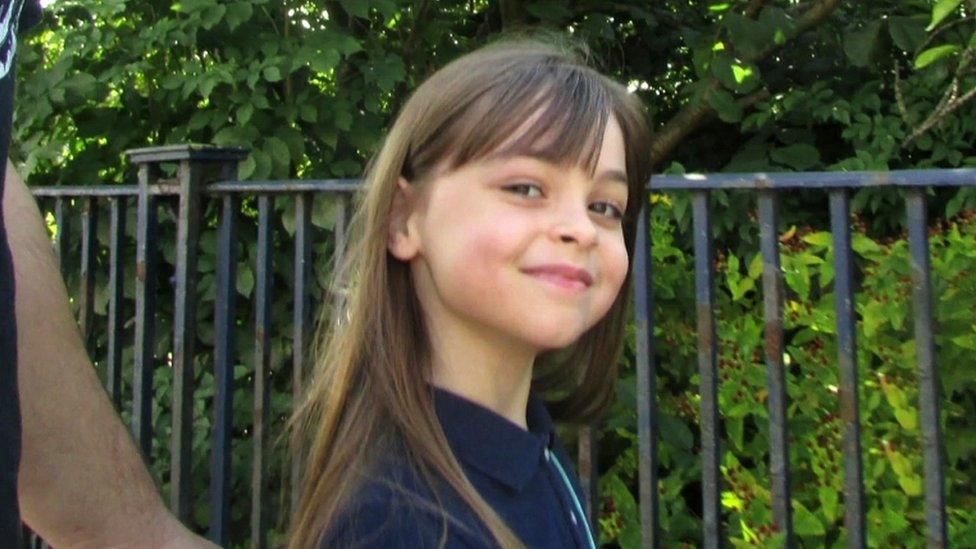
- Published7 January 2021

- Published3 November 2022

- Published7 September 2020
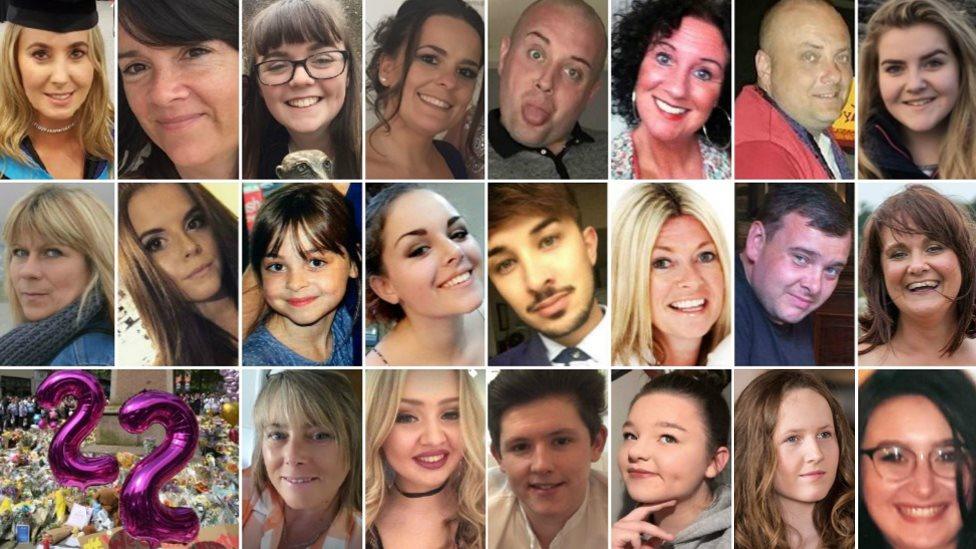
- Published20 August 2020
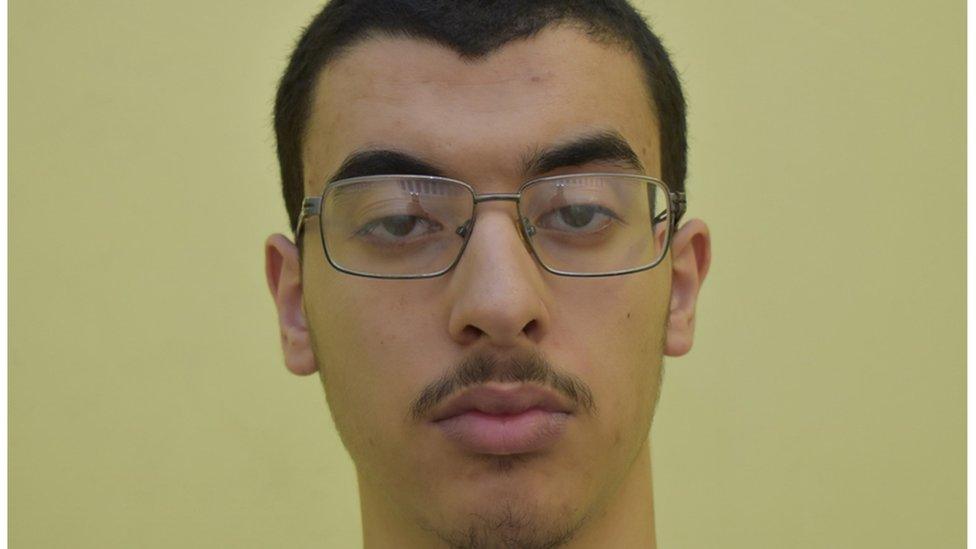
- Published17 March 2020
